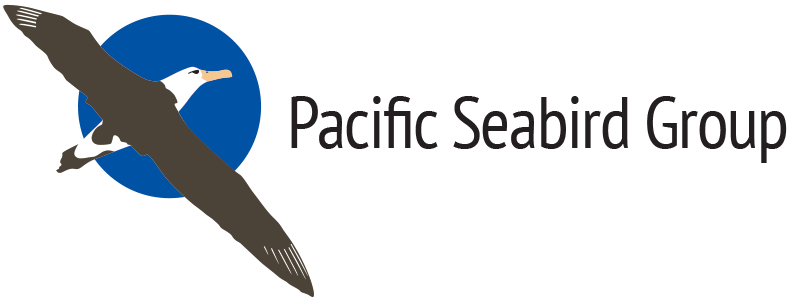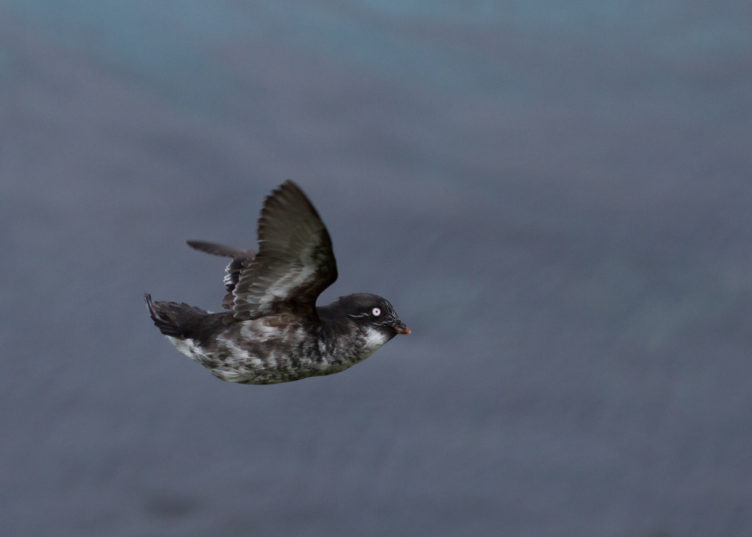Paid Field/Research Assistant: Seabird Field Assistant – Tier I (HI)
Archipelago Research and Conservation LLC (ARC) is offering an exciting 9-month full-time position to conduct surveys documenting seabird distribution and relative abundance across Kaua‘i. Deadline to apply: January 15, 2025.
Agency/Organization: Archipelago Research and Conservation LLC (ARC)
Location: Hanapēpē, Kauaʻi, Hawaiʻi
Website: Click here
Job Description: Archipelago Research and Conservation LLC (ARC) is an ecological consulting company based on the island of Kauaʻi. We are focused on research and management activities for the recovery of seabirds in the Pacific, with a particular focus on the endangered ʻaʻo (Newell’s Shearwater), ʻuaʻu (Hawaiian Petrel), and ‘ake’ake (Band-rumped Storm-petrel) on the island of Kaua‘i.
This is an exciting nine-month (Apr-Dec: April 1, 2025 to December 31, 2025) full-time position to join our team in some of the most beautiful and challenging mountain locations in the Pacific. Continuation of employment may be possible, dependent upon availability of funds, work performance, and operational considerations.
Key duties will include accessing field sites on multi-day remote camping trips to carry out:
- Surveys to document distribution and relative abundance of seabirds across Kaua‘i,
- Burrow checks, camera deployments, and Song Meter deployments to monitor breeding success,
- Management tasks, possibly including social attraction site maintenance and predator control, and
- Camera reviews, data entry, and analyses of field data.
The position reports to the ARC Science Director and ARC Field Crew Leader.
Primary Responsibilities: The Field Assistant will:
- Participate in four-day remote field trips three times a month to conduct surveys to document seabird distribution across Kaua‘i and monitor breeding success and relative abundance of Newell’s Shearwaters and Hawaiian Petrels at colony sites, using techniques including nocturnal auditory and visual (binoculars, night vision) surveys, burrow cameras, and Song Meters. Includes logistics management and equipment maintenance. Other species may be included in surveys.
- Enter field data accurately and diligently onto tablets in the field, cross-reference data in the office, and digitize data from burrow cameras. Assist with preparing field data summaries and reports.
- Review camera data from burrow and trail cameras, digitizing data on seabird and predator presence and interactions.
- Participate in management tasks for endangered seabirds (or other species) at project sites, potentially including social attraction site maintenance and predator control.
- Participate in conscientious adherence to protocol to prevent the spread of weeds and Rapid ‘Ōhi‘a Death and reduce all negative impacts to native species habitat.
- Perform other duties as assigned including ecological monitoring of other species, public outreach, and administration.
- Participate in assuring proper maintenance of project vehicles and care of project equipment. All work must be in accordance with ARC policies and guidelines.
Qualifications:
Education (Required): BSc (Bachelor’s Degree) in a relevant field from an accredited four (4) year college or university in Biological Sciences.
Experience (Required): One to three years of experience in terrestrial biological fieldwork. Demonstrated experience with one or more of the following: seabird monitoring methods, auditory point counts, operating Song Meters or burrow cameras, or predator management near seabird colonies. Similar experience with other bird species or species of conservation concern may be considered. Demonstrated remote area experience critical.
Candidate must have the following abilities:
- This is a fieldwork-orientated position. Applicants must be able to carry out biological fieldwork primarily in extremely remote areas (including densely vegetated wet forest, arid canyons and poorly-vegetated hot, dry islets) with variable temperatures, accessed by 4-wheel drive, helicopter, or extended hiking.
- to locate birds by their calls
- demonstrated ability to work independently under various field conditions.
- to use scientifically appropriate discretion and attention to detail in the field, often under difficult field conditions, including equipment management and repetitive tasks; and to diligently collect data on field tablets
- to concentrate for extended periods (up to four hours) using night-vision, binoculars, or scope under nocturnal conditions.
- to carry out irregular working hours, with many duties occurring in the evening after dark or very early in the morning (several hours before dawn).
- strenuous physical exertion and heavy lifting.
- to hike all day on obscure or no trails with a heavy backpack unassisted including off-trail navigation
- to camp for up to two weeks in remote isolated field camps under primitive conditions, over multiple months throughout the field season.
- to travel regularly by helicopter and occasionally by plane or boat.
- to drive a car or truck and use a variety of equipment for field studies. Must possess a valid driver’s license and maintain throughout the duration of employment
- to travel interisland
- to respectfully interact on a regular basis with land managers, cooperators, and members of the public.
- to follow and adhere to all safety and operational guidelines.
- to use Microsoft Office (incl. Word/Excel) and other software programs to undertake field reporting and other administrative tasks.
- to communicate effectively both orally and in writing.
- to follow directions related to the protection of native fauna and flora.
- be legally able to work in the U.S.A. (applicants must be able to present a valid U.S. passport or evidence that they can legally work in the U.S.A.) – ARC will not apply for a visa on the applicant’s behalf.
Preferred: Backpacking and climbing experience. Strong interest and background training in seabird ecology, particularly forest-nesting seabirds. Strong interest and background in incidental take projects (e.g., power line strikes, wind farm monitoring, etc.). Experience working with Hawaiian birds. Experience with use of Geographic Information System (GIS) software and databases. Familiarity with native Hawaiian flora and fauna, local conservation issues, and Kaua‘i.
Post Offer/Employment Conditions: Must possess Certification in First Aid/CPR (or be able to obtain the certificate following the training organized by ARC within two months from date of hire) and maintain throughout duration of employment. Must be able to complete basic helicopter safety course (organized by ARC) within two months from date of hire. ARC requires that all staff be fully vaccinated against COVID-19 and to provide a scan of a valid vaccination certificate.
Policy and/or Regulatory Requirements: As a condition of employment, employee will be subject to all applicable ARC policies and procedures. Violation of ARC’s policies and/or procedures or applicable State or Federal laws and/or regulations may lead to disciplinary action (including, but not limited to, possible termination of employment, etc.).
This position description is a general guide. Other duties may be included and the description is subject to change as needs dictate.
Wage: TBD
To apply: Please send your CV and a cover letter to jenrothe@arckauai.com by January 15th, 2025.
Application Deadline: January 15, 2025
Start Date: April 1, 2025
Contact: Jennifer Rothe (jenrothe@arckauai.com)






